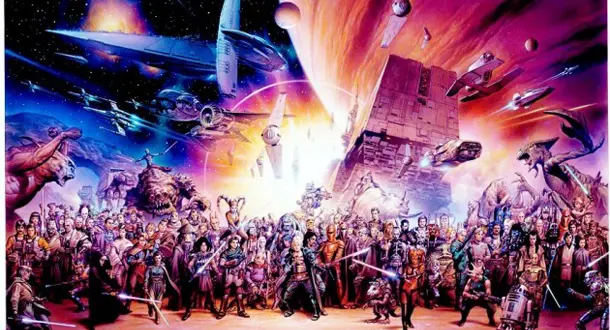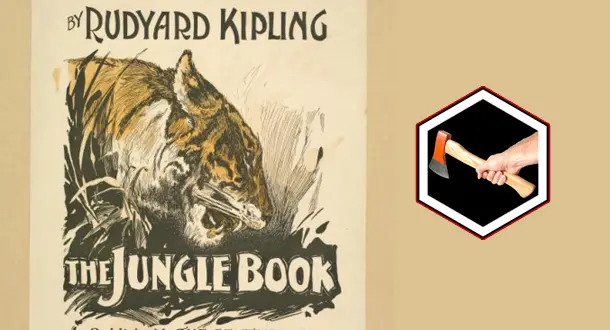Menu
Columns
Showing 3546 Columns
Showing 3546 Columns
August 27th, 2013

Seeking a break from work (and America), I decided to visit Eastern Europe this summer, along with my wife and two friends. The four of us met up in Prague, the capital of the Czech Republic. (Three of us then went to Kraków, the second largest city in Poland—check out that installment here).
Read Column →August 26th, 2013

Village Vanguard image via Skvora Limited. All other images by Joshua Chaplinsky Konichiwa, bitches! I am recently returned from a glorious three-week sojourn in the Land of the Rising Sun.
Read Column →August 23rd, 2013

Star Wars. Whether or not you consider it science fiction, it’s what many people think of when you mention space, spaceships, laser guns, or robots. One movie back in 1977 spawned an empire that continues today. It spun off into additional films, television series, games, comics and, yes, books. These make up part of what’s referred to as the Expanded Universe, the material that isn’t exactly canon but which has fleshed out Lucas’s world far beyond anything we’ve seen in the films.
Read Column →August 23rd, 2013

Photo courtesy The Hollywood Reporter I remember the first time I came across the name Elmore Leonard. It wasn’t on the cover of one of his forty-five novels, nor was it in the credits of one of the umpteen feature films that have been adapted from his work. It was on some shoddy internet forum I frequented as a teenager.
Read Column →August 23rd, 2013

That's right, we're culling two classics for the price of one this time: Rudyard Kipling's seminal children's collections, The Jungle Book and The Second Jungle Book. Time out—children's classics? Who started the rumor that these books were for kids? Do parents actually know what's in these things, or are they trusting that Walt Disney stuck as close as possible to the source material? We're going to have to clear up a few things.
Read Column →August 22nd, 2013

Hell is other people with red pens. Workshops: They’re like that dream where you walk into a classroom, only to discover you’re naked. In an ideal world, everyone in your writing group would be “naked” as well—open to the exchange of criticism and ideas, while remaining aware of how vulnerable the process makes us all.
Read Column →August 22nd, 2013

Along with drone strikes, Obamacare and the wisdom of Kim Kardashian’s wardrobe policy, self-pubbing is one of those incendiary topics that divide the world into two camps: those who like it and those who don’t. But while the rest of us sit on either side of this unbreachable opinion-chasm throwing freshly sharpened blogs at each other, one group of authors has proved self-pubbing can work by quietly making a shitload of cash.
Read Column →August 21st, 2013

This is a column with practical advice about ways to improve your chances of finding and retaining a good agent to represent you and help sell your work to a publisher. Some of the suggestions I proffer are obvious, some not so obvious. But I write this as someone who has maintained an excellent relationship with one literary agency for 27 years and 8 books. I think I know what I’m talking about.
Read Column →August 21st, 2013

Most of what we do as authors is in order to get an expected response from our readers, right? You don’t want them laughing when they should be crying, snickering at a bad sex scene, or rolling their eyes at what should be a terrifying passage. So how do you get your audience to respond? Here are some general suggestions as well as some specific tips that I hope will help you to get into the heart, mind, soul, pants, and nightmares of your audience.
Read Column →Submitting your manuscript?
Professional editors help your manuscript stand out for the right reasons.
